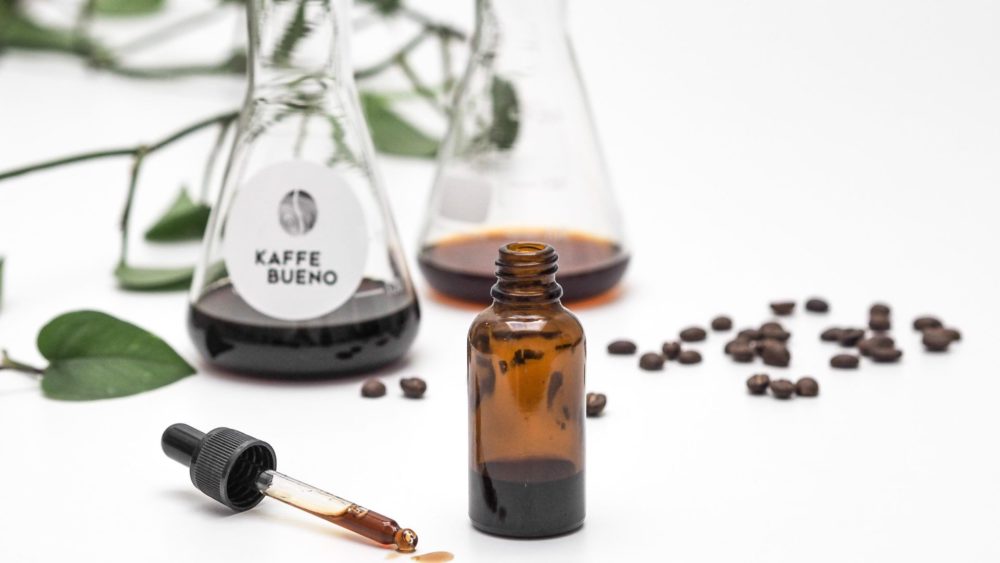Kaffe Bueno, a Danish startup that ‘upcycles’ used coffee grounds, has raised €1.1 million ($1.3 million) in seed funding from Paulig Group Venture Capital, Vækstfonden, The Yield Lab, and an undisclosed Danish business angel.
The Copenhagen-based startup applies “green chemistry” and biotechnology to transform coffee byproducts into ingredients for a variety of industries including functional foods, nutraceuticals, and cosmetics.
Kaffee Bueno launched in 2016 and is the brainchild of three entrepreneurs from Colombia – a country which produces 11.5 million bags of coffee each year making it the third-highest producer in the world after Brazil and Vietnam.
“The three of us started in London at university studying business. We were hanging out with a lot of Scandinavian people and we saw how different the perception of coffee was depending on where we came from,” CEO and co-founder Juan Pablo Medina told AFN.
“For them it symbolized family, friends, and good times. For us, we saw the reality of it from the production side.” Coffee farms back in Colombia struggle to break even, while coffee shops in London are able to make a profit, he explained.
“So, we were always thinking about what we could do with it. Our grandmas always used coffee as more than just coffee. They would apply some to wounds if you fell down, for example.”
At first, the founders chalked this up to nothing more than grandmotherly superstition. But they started exploring the multi-functional properties of coffee. They soon learned that the bean packs more than just a wake-me-up punch, offering anti-inflammatory properties among other potential benefits.
As part of their business degree curriculum, the founders created the initial business plan for Kaffe Bueno, starting out with spent coffee grounds. Less than 1% of coffee’s beneficial compounds are extracted when you make a cup of coffee, according to Medina.
“There is a big problem with coffee recycling. It grows mold pretty fast,” he said. “So, our first invention was a bio-preservation system that allows us to preserve the grounds so [they] don’t have to be picked up every day. After the grounds are preserved, we are able to extract those compounds.”
Today, you can find Kaffe Bueno’s ingredients in Kafflour, a gluten-free and high-protein flour, and Kaffe Bueno Oil, a lipid used in food as well as personal care products. It also recently entered into a partnership with Swiss flavor and fragrance maker Givaudan to boost the global scale of its core product, a coffee oil. Givaudan commercializes the product under the label name Koffee Up.
Seed funding
Kaffe Bueno will use the new funding to launch several new ingredients over the next couple of years. It also plans to scale up production of its existing ingredients to meet growing demand, secure intellectual property protection for its tech and molecules it has discovered, and build out its team.
Functional ingredients are capturing increased interest, with the market estimated to reach $105 billion by 2027 according to Grandview Research. There are a few challenges when it comes to bringing new ingredients to market, especially around regulatory approval, Medina said. Finding the right route to market for each ingredient can also be overwhelming in light of the many different pathways to choose from.
A few other startups are working on new applications for coffee. Seattle-based Atomo! makes ‘molecular’ coffee without the need for coffee beans. In a bid to combat food waste, Atomo! is using ‘upcycled’ ingredients to reverse engineer coffee’s aroma, flavor, color, caffeine content, and mouthfeel. Using its proprietary technology, it replicates the characteristics of the coffee bean using food and ag industry byproducts from things like mushrooms, acorns, and peanuts. [Disclosure: Atomo! is an AgFunder portfolio company. AgFunder is AFN‘s parent company.]
Some startups are taking a different approach to applying tech innovations in the coffee industry. Texas-based GrainChain is using blockchain with the goal of bringing more efficiency and transparency to Honduras’ disjoined coffee supply chain. Berkeley, California’s Bellwether Coffee is hoping to cut out the coffee trade’s middlemen by enabling businesses to do their own on-site coffee roasting.





